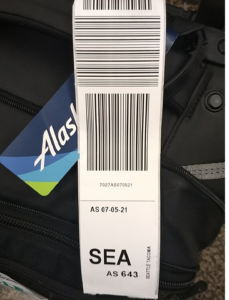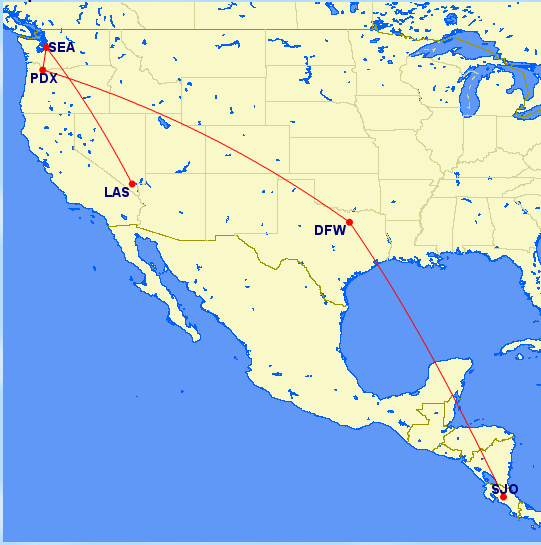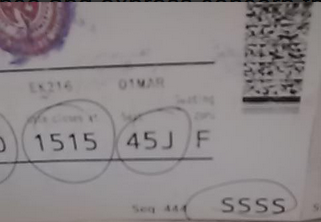Until recently, the majority of airlines had baggage transfer agreements (with the notable exception of Southwest). What did this mean? Provided you weren’t flying Southwest (who did not and does not have agreements with any other airline), you could check in with the first airline in your itinerary and ask them to check your luggage all the way through to the final destination. This was even the case with airlines that weren’t partners (such as United and Delta) and on itineraries involving more than one ticket.
I’m not sure how the airline economics work, but apparently there is some cost involved when bags are transferred between airlines. Over the years, airlines have locked down baggage agreements to the point where the majority of the airline industry looks a lot more like Southwest than previously. The upshot? If your itinerary isn’t all on one ticket, you’re probably going to have to claim your bag and re-check it.
I was just (unexpectedly) bitten by this problem by American Airlines. I’m flying American to Phoenix, and Alaska onward (on a separate ticket) to Seattle. Although American and Alaska are partners, American won’t always check a bag all the way through if you have more than one ticket on the itinerary. Sometimes they will, but it’s inconsistent. In fact, American won’t even necessarily check bags through all the way on their own airline anymore!
How can you be bitten by this problem? It can happen when you buy tickets through sites like Kayak, Momondo or Skiplagged. Many of these sites piece together an itinerary by booking a journey as separate tickets. After all, this can be significantly less expensive. My itinerary is a bit unusual, in that I’m combining an award ticket from Mazatlan to Phoenix with a paid flight from Phoenix to Seattle. However, the award ticket would have been expensive if I’d paid cash (it’s an international flight from Mexico during the shoulder season of a holiday period) and the paid flight was really cheap. It’s the same principle with paid tickets. A ticket from Seattle to Detroit via Chicago might be really expensive if you bought a through itinerary with American, but could be much less expensive if purchased as a Seattle-Chicago and Chicago-Detroit itinerary.
To punish you for saving money (there is really no other explanation I can see when only one airline is involved – if the intent is to charge you two bag fees, they could just collect them up front), American won’t check your bag all the way through. Instead, they’ll force you to claim your bag in Chicago and re-check it. This will require you to clear security again as well. There’s no good reason for this; it just introduces friction that doesn’t need to be there. What’s also odd is that this policy is inconsistent. American will allow you to combine a paid flight with an award flight booked with AAdvantage miles. However, they won’t allow you to combine a paid partner flight with an award flight, and they won’t allow you to combine a paid flight with an award booked on American through a partner (such as British Airways). And this is what just tripped me up. I assumed that the policy of combining a paid flight with an award flight would cover me, but it didn’t because the paid flight I’m taking is on Alaska Airlines (a partner flight) and the award flight I’m taking (on American) was booked with British Airways Avios.
Also bear in mind that I’m relatively expert at this stuff. Even I get tripped up sometimes. The average person, who doesn’t spend roughly 20 hours a week keeping on top of airline policies like I do, doesn’t have a chance.
What can you do? The only way to be (probably) sure that you’ll be able to check a bag all the way through to your destination is to book directly on an airline’s Web site and to book a ticket directly from your origin to your destination (without manual connections). Otherwise, build time into your schedule to claim and re-check your bags and re-clear security in connecting cities. It’s annoying, but not surprising. Full service airlines have been removing almost every last vestige of differentiation between themselves and low cost carriers. It’d be interesting to see low cost carriers go the other direction; when major airlines are creating so much friction that doesn’t need to be there, it stands to reason that they might see an opportunity for differentiation.
And of course, the other option? Travel light. None of this applies if you only have a carry-on bag!



